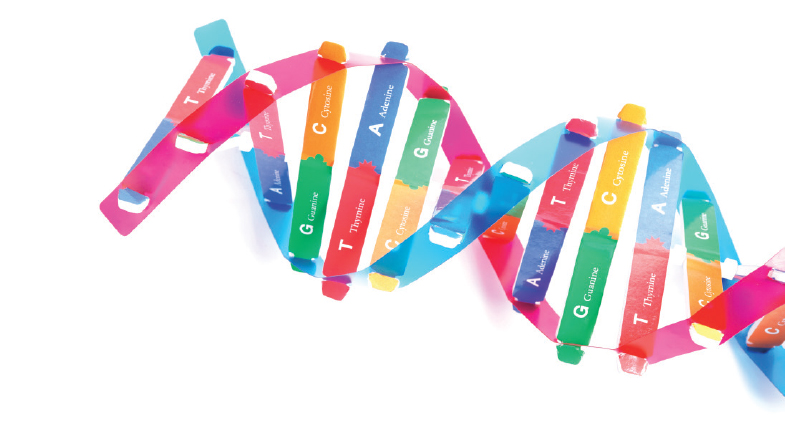Attention, please!
-
- from Shaastra :: vol 04 issue 09 :: Oct 2025

Late diagnosis of ADHD in women has medical and social implications.
If you spend any amount of time on social media, you may have heard of ADHD — Attention-Deficit/Hyperactivity Disorder — and you probably think you have it, too.
"An interesting fact about ADHD is that the vast majority of the population has at least a few ADHD symptoms," says Brandy Callahan, Associate Professor of Psychology at the University of Calgary in Canada. "There is almost nobody who has no ADHD symptoms."
That does not mean everybody has ADHD. Its symptoms are mimicked by a host of other mental health conditions — and even stress. Signs of early dementia, too, may seem like ADHD. "The people who get a diagnosis are… at the extreme end who have lots of symptoms that are very impairing," Callahan explains.
ADHD is a neurodevelopmental disorder. "What that means is, it basically appears for the first time in childhood," says Callahan. "People are more or less born with it and, in most people, symptoms will continue into adolescence and adulthood."
Symptoms are broadly split into two categories: one is inattention, which manifests as difficulty in paying and sustaining attention, as well as becoming easily distracted. The second category of symptoms is hyperactivity and impulsivity. "That refers to difficulties controlling behavioural impulses. So having difficulties staying seated, having difficulty waiting your turn, having a tendency to interrupt people… things like that," she explains.
The so-called 'ADHDers' can have symptoms primarily in either category or a combination of the two. Callahan says that the type, severity and impact of the symptoms wax and wane over time depending on multiple factors.
While ADHD is typically first diagnosed in childhood, new diagnoses in adults are on the rise, says Rohit Verma, Professor of Psychiatry at the All India Institute of Medical Sciences (AIIMS), New Delhi. His outpatient department is seeing more adults, especially young adults from Gen Z, struggling with time management, emotional regulation, and substance misuse. "When I was a resident [doctor] 20 years back, I didn't see anyone who had this adult kind of ADHD diagnosis," he says.
Though its symptoms have been known longer, ADHD was first recognised as a psychiatric condition under a different name in 1968, and it came to be known as such only in 1987. "It's a relatively new disorder," says Callahan. "We know quite a lot now but this has not always been the case," says Samuele Cortese, Professor of Child and Adolescent Psychiatry at the University of Southampton, U.K. "Until probably the end of the '90s and the beginning of 2000s, it was believed that ADHD was a kind of condition just for children and that it magically goes away after adolescence."
In going undiagnosed or misdiagnosed in women, ADHD has parallels with other mental and physical health conditions.
ADHD now affects about 4.6% of adults globally. Awareness among clinicians and the public, changing diagnostic criteria and treatment of milder cases have all contributed to the surge in diagnosis, researchers say. "People think that there's been an explosion in treatment; we are overtreating ADHD," Cortese says. "We are simply catching up."
According to the U.S.-centric health data platform Epic Research, the incidence of ADHD diagnosis in female populations aged 23-29 years and 30-49 years almost doubled from 2020 to 2022.
DELAYED DIAGNOSES
"Women are more likely to be diagnosed late," says Helena Kobayashi-Wood, an author of a qualitative study on ADHD in women, who was with the University of St Andrews, U.K., at the time of research. The research, published in Scientific Reports in July 2025 (go.nature.com/3Vb3rpN), assessed the psychological and emotional toll of receiving a delayed diagnosis.
Participants of the study were U.K.- based, cisgender women between the ages of 19 and 72 years who were diagnosed with ADHD after turning 15. Three overarching themes emerged from the participants' responses. The first was a feeling of being dismissed by medical professionals. Second, having grown up with an undiagnosed ADHD, many women had developed low self-esteem due to self-criticism and criticism from others; the diagnosis helped improve their sense of self. The third theme was about how things could have turned out differently in academics, career, and relationships had these women received the necessary support earlier in life.
As children, girls are less likely to be referred for diagnosis than boys, says Kobayashi-Wood.
Being visibly more disruptive in classrooms, boys are brought much more quickly to the clinics, Verma explains. Girls, on the other hand, learn to mask their symptoms to align with societal norms, and slip into the inattentive type of ADHD instead. "Their symptoms are not really outwardly disruptive to their environment," says Callahan. Not getting diagnosed means missing out on medication, therapy and accommodations in class. "They go through their childhood and teenage years... really struggling," Callahan says. "We see lots of co-occurring anxiety, depression, lots of issues that emerge in adulthood in these women."
What happens during adulthood for ADHD to unravel in women?
"Becoming a mother is very impactful for women with ADHD," says Callahan. "They've developed strategies, they have a structure, they're thriving, and then all of a sudden, having a kid turns everything upside down." Menopause is another period during which hormonal fluctuations can create new problems for women with ADHD, she says.
In going undiagnosed or misdiagnosed in women, ADHD has parallels with other mental health conditions, such as autism spectrum disorder. The gender bias is now evident in physical health conditions, too. Overlooking that women's symptoms for cardiovascular disease differ from men's leads to delayed diagnosis with serious outcomes for women (bit.ly/miss-diagnosis).
As the presentation of ADHD symptoms varies with gender, Cortese says that some in his field are arguing for a specific set of criteria for females. "In adults, actually, there is a different pattern," he says. Unlike children, adults are not typically brought to clinics by their parents. "You self-refer to service, and we know that females tend to self-refer more."
TREATABLE OR CURABLE?
Clinical diagnosis of ADHD, however, is a long process involving the patient and people who know them well — such as a parent, sibling or spouse. "It's a very thorough assessment that involves a long interview to determine that the symptoms have indeed been present since childhood; that these are long-standing issues," says Callahan.
Treatment options include medication (with stimulant and non-stimulant drugs), cognitive behavioural therapy or a combination approach.

In a study published in The BMJ in August, Cortese and colleagues looked at the impact of drug treatment on five outcomes in ADHDers — suicidal behaviour, substance misuse, criminality, accidental injuries, and transport accidents (bit.ly/ADHD-drugs) — all of which are associated with ADHD. Analysing data from 148,581 newly diagnosed ADHD individuals aged 6-64 years and living in Sweden, they found that ADHD drugs reduced the risks of all five outcomes for recurrent events. For the first occurrence, treatment decreased the risks for all but one of the five adverse outcomes.
Many people are wary of ADHD medication, thinking it will harm the brain and the body, says Cortese. "We show that actually rather than causing harm... they decrease important risks." At the group level, there is a reduction of around 15% in car accident risk, for instance, he says. The risk reduction was similar for males and females.
As ADHD brains are structured differently, medication or therapy doesn't make ADHD go away. "Currently, we don't have any treatment which is curative," says Cortese. "It's like, I don't know, diabetes. So, you need to keep on taking insulin." Over time, however, people may learn coping strategies, he adds.
"The impact of ADHD depends on your environment," Callahan says. The same person with the same symptoms will be impaired in one situation and thrive in another, she elaborates. In a study published in April (bit.ly/ADHDing), Callahan and colleagues examined the role of factors, including social and personal, in the successful functioning of 64 ADHD adults, most of whom were female. "They have found a good partner with whom they match; they're working in a job that values their personality and their ADHD," Callahan says. "People with ADHD tend to do very well in jobs that require creativity and spontaneity."
Have a
story idea?
Tell us.
Do you have a recent research paper or an idea for a science/technology-themed article that you'd like to tell us about?
GET IN TOUCH














